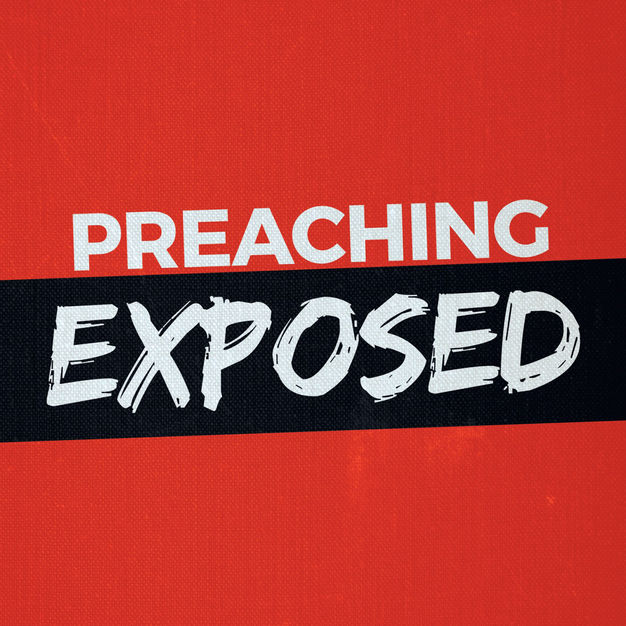
Northwest Gospel Church - Camas/Washougal
Northwest Gospel Church
Latest sermons from Northwest Gospel Church in Camas, Washington. For more information visit us online at nwgospel.com
- 26 minutes 11 secondsSearch & Rescue
1 Timothy 1:12-17 | Ben Potloff | "The saying is trustworthy and deserving of full acceptance, that Christ Jesus came into the world to save sinners, of whom I am the foremost" (v. 15). The good news of Christmas is that God himself, in the person of Jesus Christ, came to rescue and redeem sinners to his own eternal glory!
24 December 2024, 10:00 am - 50 minutes 59 secondsDo You See What I See?
John 9:1-41 | Ben Potloff | "Jesus said, 'For judgment I came into this world, that those who do not see may see, and those who see may become blind'" (v. 39). Some of the sayings of Jesus can be difficult for sinful human beings to understand and—often—even harder to accept. However, the idea of judgment is critical to understanding the person and work of Jesus Christ. For the one who trusts in Christ, there is great hope in the final Judge.
MAIN IDEA
Jesus came to make the blind see.
OUTLINE
I. Pain is not punishment or purposeless, but is a platform that displays God’s power (vv. 1-7)
II. Rejecters of Jesus are blind and guilty, believers in Jesus have light and life (vv. 8-41)
DISCUSSION QUESTIONS
1. What stands out to you in this passage? Why?
2. What is difficult to understand or accept in this passage? How does your natural—and sinful—self want to push against the words of Jesus?
3. What hope is there for sinners facing a judge like Christ?
4. How does this passage give you a richer understanding of the person and work of Jesus?
5. How does this passage call you to live differently?
22 December 2024, 10:00 am - 42 minutes 24 secondsThe Seeker
Luke 19:1-10 | Ben Potloff | "For the Son of Man came to seek and to save the lost.” The story of Jesus and Zacchaeus is familiar to those who grew up in the church. Zacchaeus, a wee little man and swindling tax collector, climbs because he simply must see Jesus. Despite the grumbling of the crowd, Jesus goes to his house and declares good news: good news for Zacchaeus then and good news for us today.
MAIN IDEA
Jesus came to seek and save the lost.
OUTLINE
I. Jesus pursues the unworthy and despicable (vv. 1-7, 10)
II. Salvation by faith leads to a changed life (vv. 6-9)
DISCUSSION QUESTIONS
1. Are you familiar with the Sunday school story of Jesus and Zacchaeus? Before Sunday's sermon, what did you think was the main point of this story?
2. What was Zacchaeus seeking? What does he find?
3. What does this narrative teach you about the person, work, and mission of Christ?
4. How does this passage challenge you to think and/or live differently?
15 December 2024, 10:00 am - 37 minutes 4 secondsThe Greatest
Mark 10:35-45 | Ben Potloff | "But whoever would be great among you must be your servant, and whoever would be first among you must be slave of all" (vv. 43b-44). How are the people of God supposed to interact with one another? Here, we see that they are to love and self-sacrificially serve.
MAIN IDEA
The Servant is the greatest.
OUTLINE
I. The human heart seeks self-serving glory (vv. 35-41)
II. True greatness is achieved through self-sacrificial serving (vv. 42-45)
8 December 2024, 10:00 am - 47 minutes 3 secondsThe Reason For The Season
Matthew 5:17-20 | Ben Potloff | "Do not think that I have come to abolish the Law or the Prophets; I have not come to abolish them but to fulfill them" (v. 17). In the Old Testament, God gave His people the Law and the Prophets so they would know what is required for them to be in right relationship with Him. Sadly, Israel rejected, distorted, and fell short over and over again. Something needed to be done for God's people to be forgiven of their sins and counted righteous before God! Here, we see that Christ is the one who does what sinful people could never do in the face of God's perfect law.
MAIN IDEA
Christ came to fulfill God’s Word.
OUTLINE
I. The Old Testament points to Christ (vv. 17-18)
II. The Old Testament endures in Christ (vv. 19-20)
DISCUSSION QUESTIONS
1. What stands out to you about this passage? What is challenging or confusing about what Matthew records here?
2. What is the purpose of God's Law and His Prophets in the Old Testament?
3. How is God's grace seen in Christ's fulfillment of the Law and Prophets on your behalf?
4. What does this passage teach you about the person, work, and purpose of Jesus Christ?
5. How does this passage challenge the way you think or how you live?
1 December 2024, 10:00 am - 44 minutes 8 secondsTeam Sport
Colossians 4:7-18 | Ben Potloff | Sitting on the floor of a Roman prison and bound in chains, Paul concludes the dictation of his letter to the church in Colossae. In his usual format, Paul closes the letter by extending his greetings to the complex network of leaders connected with his churches across the Roman world. After all that Paul has written to the Colossian church, this is what he wants to leave them with. Also, this means that after all that the Holy Spirit has inspired Paul to write to His people, this is what He wants to leave His people, us, with. It’s easy to neglect these greetings and skim through them, but they matter just as much as every other word of Scripture - let’s see why!
MAIN IDEA
Kingdom work is done together.
OUTLINE
I. Our call is faithful service (vv. 7-9, 12-13, 17)
II. Our comfort is fellow servants (vv. 7-11, 14-15)
III. Our connection is in Christ (vv. 7, 12, 16-18)
DISCUSSION QUESTIONS
1. What does encouraging other believers’ hearts look like to you on a practical level?
2. Paul asks the readers to remember his chains. Why is it important for Christians to remember one another in their suffering?
3. What does “struggling in prayer” mean to you? Is there anything or anyone that you’ve been struggling on behalf of in prayer?
4. What would it look like for you to fulfill the ministry/work in which you have received in the Lord?
5. How can you use your present circumstances to spread the gospel and support your fellow believers, as Paul did from prison?
6. How does Paul’s message to the early church inform or challenge the way you view participation in your local church?
24 November 2024, 10:00 am - 45 minutes 45 secondsAnd Another Thing…
Colossians 4:2-6 | Max Janusch | This week, after pointed instruction about the household of the follower of Jesus, Paul begins to conclude his letter, giving some final instructions before wrapping up. He puts his finger on two crucial elements of the Christian life: prayer and our behavior toward those who do not believe. In light of who Jesus is and what he’s done, how should we pray? And how should we act around those who aren’t living as though all things truly are through him and for him?
MAIN IDEA
Let your life speak of Christ.
OUTLINE
I. Persistent prayer should permeate God’s people. (vv. 2-4)
II. Would-be witnesses should walk wisely in the world. (vv. 5-6)
DISCUSSION QUESTIONS
1. Think back on last week’s text (3:18-4:1). Now read this week’s short text together (4:2-6). How do Paul’s words in these five verses help us apply the instruction from last week’s passage?
2. Look at all five days of “Engage the Text.” You’ll notice that all of Paul’s instructions in these verses can be traced back to the teachings of Jesus. Take a few moments and look at all the overlap, making observations as you go.
3. Look at verses 2-4. What does Paul say about prayer? How should this shape how we pray? Does this come easy to you? Difficult? Why?
4. How often do you pray for each other, that God would help your group mates as you share the gospel with others? How can you encourage each other in this?
5. Read verses 5-6. Why is this especially important in our current day and age? Think about your own personal relationships. What are specific ways that this can be a struggle? How can we, as the people of God, grow in this area?
17 November 2024, 10:00 am - 51 minutes 51 secondsHow Shall We Live?
Colossians 3:18-4:1 | Luke Hendrix | Moving on from his exhortations in the beginning of Colossians 3, Paul now takes those principles and then gives instructions on what it looks like to live life in Christ in the context of the relationships we find ourselves in. He first addresses the family, the foundational relationship of any society. He speaks to wives, husbands, children, and fathers before turning his attention to servants and masters. Our lives in Christ are to reflect him fully, no matter what role we find ourselves fulfilling, living out verses twelve through seventeen in every context.
DISCUSSION QUESTIONS
1. What role or roles in your life are you struggling the most to live out considering Paul’s call in verses 12-17?
2. In the roles of wife, husband, mother, father, boss or employee, what has helped you most in living as God’s chosen ones?
3. Paul says that fathers are not to provoke their children, for those that are parents in the group, how do you do this well and where do you see yourself needing to grow in this area?
4. The work that you do, who do you think people see you doing it for and why?
5. Verse 25 tells us that God shows no favoritism and that judgment will be impartial regardless of human “class”. How should this change the way we think about people and the way we treat them in life?
10 November 2024, 10:00 am - 42 minutes 47 secondsDress Code
Colossians 3:12-17 | Max Janusch | The Christian life comes with a whole new wardrobe, new habits and practices and priorities. And the best part? This new life is not lived in order to get to God, it’s lived because you have God! These new things are not ways to righteousness, they are the way of righteousness for the individual Christian and the whole Christian community.
MAIN IDEA
New life calls for a new way of life.
OUTLINE
I. Christians act different because they are different. (vv. 12-14)
II. Christians overflow with thankfulness to God. (15-17)
DISCUSSION QUESTIONS
1. What has stood out to you from this passage that is particularly encouraging, challenging, inspiring, comforting, etc.?
2. What reason does Paul give for you to “put on” all these things? What does he say qualifies you for this?
3. What or who do you need in order to do the things called for in this passage? Hint: look at those around you.
4. Thankfulness and thanksgiving play a big part in this passage. How do you practice these things? How can you grow in this discipline of the Christian life?
5. What do you need in order to grow in all these things? What happens if you become unbalanced and only grow in certain areas of the Christian life?
3 November 2024, 10:00 am - 44 minutes 19 secondsHow To Be Your True Self
Colossians 3:1-11 | Ben Potloff | Now that our lives are in Christ, we are at war as we daily put to death that which used to reign in our mortal bodies. What was once dead is now alive and therefore has nothing to do with those things that bring death. We’ve been given a new self that is being transformed into the image of our creator as we walk according to his ways.
MAIN IDEA
Be who you are in Christ.
OUTLINE
I. You have died with Christ, so put to death the old self (vv. 3, 5-9)
II. You have been raised with Christ, so put on the new self (vv. 1-2, 4, 10-11)
DISCUSSION QUESTIONS
1. When Paul calls us to seek the things that are above what do you think that practically looks like day to day?
2. What helps you daily practice setting your mind on things above? What hinders you from being able to do so?
3. Paul calls us to deal violently with our sin by putting it to death. What is your daily mindset when it comes to your sin?
4. This might be a good time to break up between men and women so you can discuss and confess sin that you continue to struggle with putting to death.
5. Status is a major part of the way the world relates but Paul makes it clear in verse 11 that there are no status distinctions in those who are in Christ. Is that something you think our church does well and where might we still need to grow in this area?
27 October 2024, 10:00 am - 42 minutes 20 secondsShadows & Substance
Colossians 2:16-23 | Ben Potloff | Is Christ enough? Is what Jesus did for us on the cross when He bore our sins in His body enough? When He shed His blood, when He died and was buried, was it enough? And when He rose again from the dead, was it enough? Was all that Jesus accomplished enough for us to stand before a Holy God, forgiven, cleansed, and washed from our sins? Paul’s response is a resounding YES!
MAIN IDEA
Religious experiences or rule-keeping can’t change you, but Christ can.
OUTLINE
I. Don’t be deceived by Christless mysticism and behavior modification (vv. 18-23)
II. Don’t follow shadows when you can follow the real thing (vv. 16-17)
DISCUSSION QUESTIONS
1. Has there ever been a time that others have passed judgment on your walk with Christ like those in Colossians 2:16? How does Paul encourage them in 2:17?
2. What is meant by asceticism in Colossian 2:18, and is there a place for it in our faith walk with Christ? (Definition: a lifestyle characterized by abstinence from worldly pleasures. An example would be Monks withdrawing from society, severe fasting, mistreating the body)
3. Continuing in Colossian 2:18 what are your thoughts on Paul’s mention of those worshiping angels and visions? Are you surprised by Paul’s response to that at the end of verse 18?
What is Paul’s response to 2:18 and why those who practice what he mentions are being misled?
4. In Colossians 2:20-23 Paul talks about mixing man-made religion in with the truth of the gospel. How can this be a hindrance to our walk with Christ? How do we distinguish between the two?
20 October 2024, 10:00 am - More Episodes? Get the App
Your feedback is valuable to us. Should you encounter any bugs, glitches, lack of functionality or other problems, please email us on [email protected] or join Moon.FM Telegram Group where you can talk directly to the dev team who are happy to answer any queries.
 Preaching Exposed
Preaching Exposed
 Northwest Gospel Church - East/Vancouver
Northwest Gospel Church - East/Vancouver